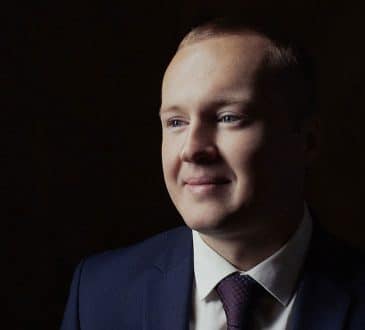Navigating the Future of Work: Changing Mindsets for Workplace Flexibility Success

The traditional 9-to-5 work schedule is becoming a thing of the past. With the COVID-19 pandemic accelerating the shift towards remote work, people are now seeking more career autonomy and flexibility. In this article, we will explore the changing mindset required to thrive in the future of work. We will delve into the importance of individual, team, and role-based flexibility, the mindset of excellence from anywhere, fostering connection in a remote working environment, and the need for continuous evolution. By embracing these mindsets, leaders can create a workplace where team members can thrive and achieve long-term success.
The lyrics from Dolly Parton’s hit song 9 to 5 playfully reminds us of the grind in a regular work schedule. With the COVID pandemic, these experiences and personal values have become a focus for people in the workforce. The bottom line is people are searching for careers where they have more influence on how, when, and where they work.
The future of work has arrived. And we are not going back.
Flexibility and hybrid schedules are here to stay and will prosper as we learn to be productive in new and better ways. People demand more autonomy in how, when, and where they work. Gallup’s State of the Global Workplace: 2023 Report states that 77% of employees are quiet quitting or loud quitting. The report notes that the flexibility of remote work allows for greater autonomy and wellbeing, which today’s team members highly prize.
Even in the face of an unengaged workforce and significant numbers of people looking for other opportunities, some organizations are doubling down on control and trying to optimize output and production at the expense of people’s well-being. Although this may work in the short term, this strategy will fail even as some managers double down based on a production need.
What mindset do we need to thrive in this exponential world of change where people walk out daily in search of more autonomy and meaning in work?
- The Mindset of Flexibility is Unique for the Individual, Team, and Role
- Flexibility is not a one-size-fits-all concept. It is unique to each individual, team, and role within an organization. Leaders who are creative in job sharing and gaining feedback on individual needs/preferences will instill trust and meaning for team members and turn the tables on working too many hours where the workload is shared across more team members. Studies show productivity decreases as people are overworked and burned out. Developing a sustainability mindset focused on caring for people is critical for long-term success.
- The Mindset of Excellence from Anywhere
Leaders who develop a mindset of excellence from anywhere will help their organization move beyond control to its full potential. We will see shifts in focus from efforts and time to rewarding results and outcomes. The focus will shift from control to accountable autonomy. Overall, the market leaders will implement strategies that ensure people are respected, rewarded, and recognized while providing more influence on how, when, and where they work. By embracing this mindset, organizations can unlock the full potential of their teams and achieve greater success. - The Mindset of Fostering Connection in a Remote Working Environment
Leaders must prioritize intentional connection as the workforce becomes more distributed to foster a sense of belonging. This starts with each leader trying to connect with their team members. Regular face-to-face meetings, both offline and online, should be held to promote collaboration and build relationships. Even fully remote team members should be encouraged to participate in face-to-face onboarding to establish a strong connection from the beginning. By adopting a connection mindset, leaders can better understand the aspirations of their team members and create a culture of inclusivity. This mindset leads to confidential feedback loops that help the leadership team stay connected to the pulse of the culture. - The Mindset of Evolution
In a rapidly changing world, organizations must continuously evolve to meet the needs of their team members. Leaders should regularly assess how well they are meeting their team members’ flexibility and hybrid schedule requirements. What percentage of your workforce reports that their flexibility/hybrid schedules work for them? No one is going to get it right all the time. Experimentation is key to changing mindsets and finding innovative solutions that support the team’s evolving needs. By embracing a mindset of evolution, organizations can stay ahead of the curve and ensure that their workforce remains engaged and motivated.
The future of work is here, and flexibility is at its core. Embracing a mindset of individual, team, and role-based flexibility, excellence from anywhere, fostering connection, and evolution is essential for success. As leaders, we are responsible for creating a workplace where team members can thrive, regardless of their location or working hours. So, let’s leave behind the ‘9 to 5’ mentality and sing a better song for the future of work—one that harmonizes with the needs and aspirations of your team!
Written by Joey Havens.
Have you read?
The highest-paid tech CEOs in the United States.
Highest-Paid Biopharmaceutical CEOs in the United States.
Executive Pay: Top 8 Highest-Paid Hotel CEOs.
Openly LGBTQ CEOs at the helm of major global companies.
Top countries that admire their CEOs and other C-suite leadership teams the most.
Bring the best of the CEOWORLD magazine's global journalism to audiences in the United States and around the world. - Add CEOWORLD magazine to your Google News feed.
Follow CEOWORLD magazine headlines on: Google News, LinkedIn, Twitter, and Facebook.
Copyright 2025 The CEOWORLD magazine. All rights reserved. This material (and any extract from it) must not be copied, redistributed or placed on any website, without CEOWORLD magazine' prior written consent. For media queries, please contact: info@ceoworld.biz








